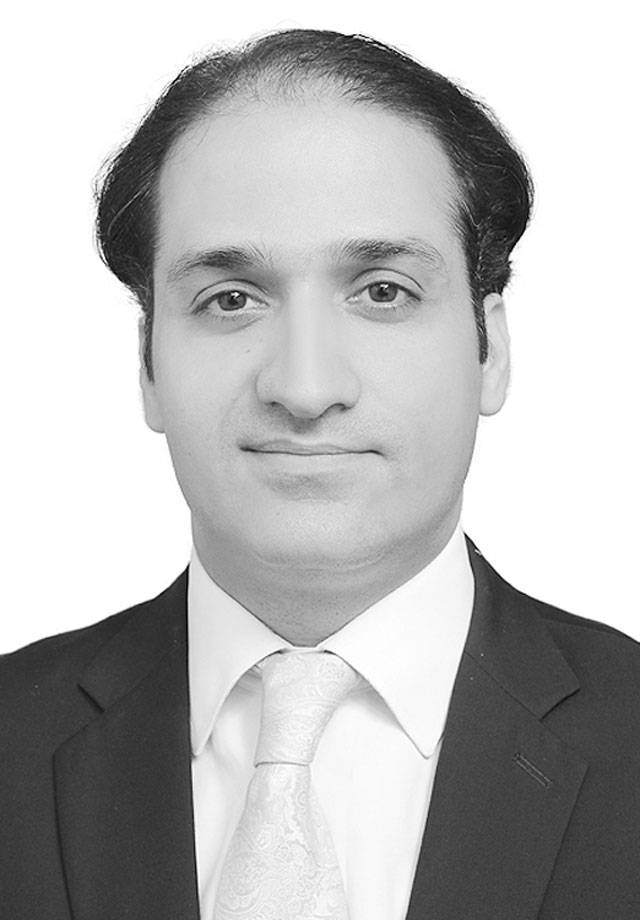“The constitution is colour-blind, and neither knows nor tolerates classes among citizens. In respect of civil rights, all citizens are equal before the law. The humblest is the peer of the most powerful”, said John Marshall. In a participatory democracy, the free will of the people is reflected through the ballot in free and fair elections. The elected representatives are in a fiduciary relationship with their electorate, thus, they are trustees and should act in the public interest in performing their official duties. As per the preamble of our Constitution, the sovereignty over the entire Universe belongs to Allah Almighty and the authority of the state is to be exercised as a sacred trust, and the principles of democracy, freedom, equality, tolerance, and social justice, as enunciated by Islam are to be fully observed in Pakistan. The Constitution is a social contract between the state and its citizens, wherein, it was envisaged by the framers of our Constitution that the Fundamental Rights of the citizens enshrined in the Constitution will be protected by the state and the state shall ensure the elimination of all forms of exploitation.
The doctrine of good governance is the sheet anchor of our Constitution, however, the frequent allegations of rigging in the elections, whether elections for the local governments or the assemblies, or the senate, speaks volumes about bad governance and also offend our Constitution.
President Abraham Lincoln of the United States of America once said; “Democracy is a government, of the people, by the people, and for the people”. Thus, we can only expect true democratic values from a genuinely elected government. In such circumstances, what is the way forward? It is to follow the Constitution in the letter and spirit. Pakistan’s future is in a genuine social democracy, which can only be achieved by strictly following the Constitution.
The elections must be free and fair, which is the demand of the Constitution. Whoever wins the elections should be allowed to form the government to govern the province or the federation. It is the Constitutional duty of the Election Commission of Pakistan to make necessary arrangements to ensure that the elections are conducted honestly, justly, and fairly, and corrupt practices are guarded against. Given the current political scenario and the deteriorating economic conditions of the country, there is a need for a grand dialogue among political parties to reach a political settlement to conduct peaceful, free, and fair elections. The guiding principle should be the Constitution of Pakistan which demands all government institutions remain apolitical and impartial. All state functionaries must act fairly and justly towards all political parties, hence to the Constitution and law.
To start with, the establishment has rightly said that they want to remain apolitical and impartial. In the long term, the policy of non-interference will be beneficial for the country and the institutions. Political parties should not seek the indulgence of the courts in political disputes, however, undoubtedly, the Supreme Court is the final judge of all legal matters. But to avoid unnecessary criticism, the Supreme Court may constitute a larger bench in high-profile political cases, if requested by any party to the case.
In the last decades, almost every political party has levelled allegations of rigging against its opponents, however, times have changed, and this is the age of social media. Now, there is a need for a level playing field for all political parties that shall be by the Constitutional scheme for the general election. We need impartial individuals to head all relevant institutions particularly, the caretaker government and the Election Commission of Pakistan to make sure that the next election is free and fair, and the results are accepted by all stakeholders even if there is a razor-thin majority. Let the people decide their political destiny because people are the source of power, which is the spirit of the Constitution.
Pakistan cannot afford further political and economic crises. Ordinary citizens are suffering due to economic and political instability. The current national and provincial assemblies may complete their term, or the governments may call for early elections in 2023, however, in these circumstances, the most important question is the credibility of the next election. Political polarisation is skyrocketing, thus, there is a need for confidence-building measures leading to some minimum consensus amongst the political stakeholders. It is most important to provide an impartial and peaceful environment for conducting a free and fair election that is only possible if the Constitution is followed in the letter and spirit by all stakeholders. It will create an environment for democracy to flourish in essence. If all the stakeholders strictly adhere to the Constitution, and if the coming elections in 2023 are free and fair then the general perception about democracy may change in coming years and we may see a strong and stable elected government, which may become a government, “of the people, by the people, and for the people”. Otherwise, more chaos and crisis are the writing on the wall.
Monday, May 13, 2024
Democracy and the constitution

Autopsy fails to determine cause of housemaid’s death in Karachi
10:08 AM | May 13, 2024
Chinese engineer rescued from River Jhelum peril
May 13, 2024
Teachers Panel sweeps ASA election at IIUI
May 13, 2024
Indigenous Armaments
May 13, 2024
The Path Ahead
May 13, 2024
Bridging Divides
May 13, 2024
A Global Problem
May 12, 2024
Symbolic Victories
May 12, 2024
Climate awakening
May 13, 2024
Tourism conundrum
May 13, 2024
Hockey despair
May 13, 2024
Public policy issues
May 13, 2024
Data nexus
May 12, 2024
ePaper - Nawaiwaqt
Advertisement
Nawaiwaqt Group | Copyright © 2024





